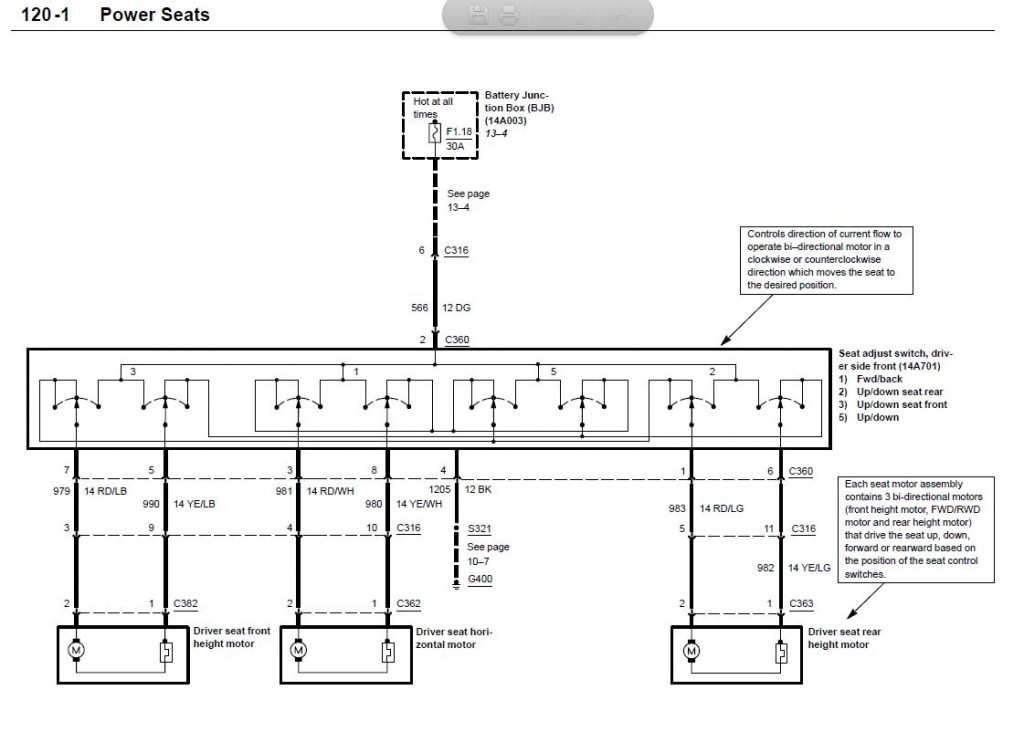When it comes to troubleshooting electrical issues in Ford vehicles, having access to a Ford Power Seat Wiring Diagram can be incredibly helpful. These diagrams provide a detailed overview of the wiring and electrical components in a vehicle’s power seat system, making it easier to identify and fix any issues that may arise.
Why Ford Power Seat Wiring Diagrams are Essential
Ford Power Seat Wiring Diagrams are essential for several reasons:
- They provide a visual representation of the wiring and electrical components in the power seat system.
- They help identify the location of each wire and component, making troubleshooting easier.
- They show the connection points between different components, helping to pinpoint potential problem areas.
Reading and Interpreting Ford Power Seat Wiring Diagrams
When reading and interpreting Ford Power Seat Wiring Diagrams, it’s important to:
- Understand the symbols and abbreviations used in the diagram.
- Follow the flow of the wiring from component to component.
- Identify color codes for wires to ensure correct connections.
Using Ford Power Seat Wiring Diagrams for Troubleshooting
Ford Power Seat Wiring Diagrams are invaluable for troubleshooting electrical problems in power seat systems. Here’s how they can help:
- They allow you to trace the flow of electricity through the system, helping to identify any breaks or malfunctions.
- They show the relationship between different components, making it easier to isolate the source of a problem.
- They provide a roadmap for testing and checking each component in the system.
It’s important to remember that safety should always be a top priority when working with electrical systems and using wiring diagrams. Here are some safety tips and best practices to keep in mind:
- Always disconnect the vehicle’s battery before working on any electrical components.
- Use insulated tools to prevent electrical shock.
- Avoid working on electrical components in wet or damp conditions.
- Double-check all connections before reassembling the system to prevent short circuits.
Ford Power Seat Wiring Diagram
How To Wire Ford Power Seats

2003 Ford Mustang: V6, GT, SVT Power Seats Wiring Diagram

06 ford f150 wiring diagram

Ford Power Seat Wiring Diagram – DiagramInfo

1963 Ford Power Seat Wiring Diagram

Q&A: 1997 Ford Explorer Power Seat Wiring Diagram – How to Wire Ford
